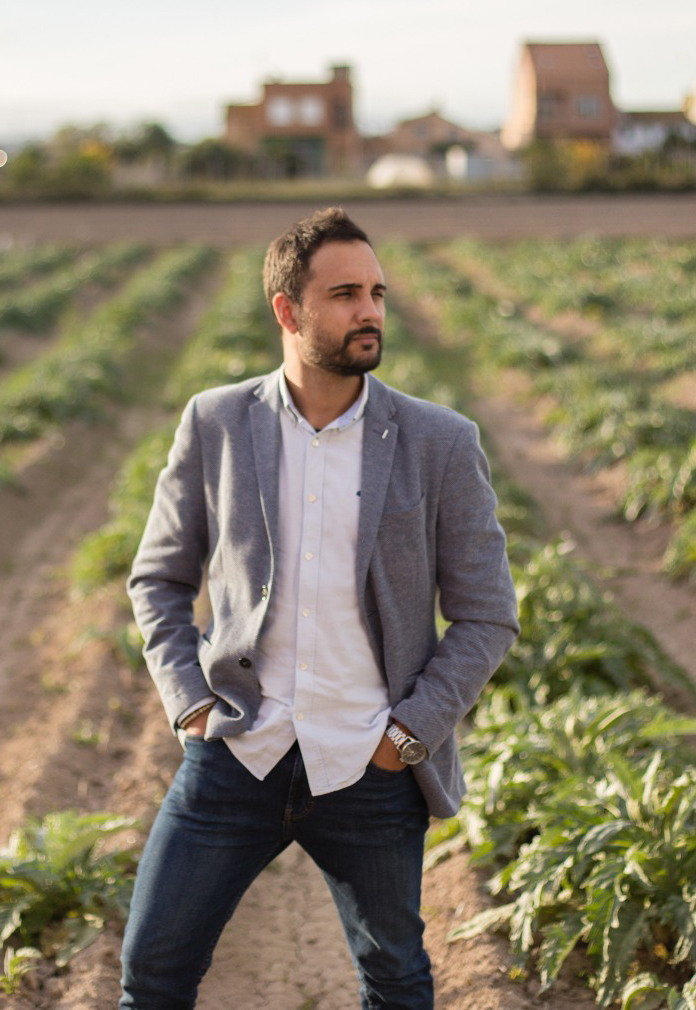Weaving the energy question into the social fabric

The City of Valencia is one of the new members in Energy Cities Board of Directors. Alejandro Ramon Àlvarez, Councillor in charge of the climate emergency and the energy transition for the city, talked to us about Covid, citizen participation and the keenness to look beyond the city’s borders.
We first asked Alejandro: Spain has been one of the European countries most affected by Covid. What is the situation in Valencia? And what has been your personal remedy to keep your spirits up?
Alejandro Ramon: Indeed, in Spain the
situation was and still is very delicate. We are currently experiencing a
second, considerable wave of infections, although it is true that Valencia is,
for the time-being, one of the regions with the lowest incidence in Spain. On a
personal level, I’ve tried to deal with it as best I can: I’ve spent more time
with my family, I’ve revisited old hobbies and I’ve taken time to reflect on
the importance of the local level.
What impact does (or will) this crisis have on the energy and climate priorities set by Valencia’s city council? Do you feel sufficiently “resilient” for the “day after”?
A.R.: In the city we’ve approved a reconstruction plan and reached
agreement with most of the political parties to establish the priorities and focuses
of action for the recovery of the city. In addition to health, economic
revitalization and social rights, these priorities also include sustainability,
the fight against climate change and the resilience of the city as crosscutting
focuses of the recovery. Certainly both the public and private sectors will see
their own financing capacity and economic fluidity reduced due to the economic
crisis, although it is true that European plans may counteract this situation.
But the energy transition and the fight against climate change remain our priorities
and strategy to deliver this green recovery to the city, in line with the guidelines
set out at the European level.
The coronavirus has breathed new life into the dynamics of proximity and solidarity between citizens. Valencia is participating in the Tomorrow project. As part of this project, you are defining a strategy for greater collaboration with citizens on energy issues. What instruments/initiatives do you already have and what is still needed?
Indeed, it has always been vital for us to reinforce solidarity networks and the social fabric that exists in the city, and to promote participatory processes and citizen participation based on these networks. Within the framework of the TOMORROW project, with the support of Energy Cities and other European cities, we are promoting participatory processes to collaboratively design the city’s energy transition strategy for 2030 and 2050.
In December 2019 an internal working group was set up with the different
municipal departments involved in designing the SECAP and fighting climate
change. On 24 September 2020, we set up another external group with 20
representatives from the quintuple helix (civil society, private businesses,
academia, public entities, the media) to coordinate and lead the development of
the energy transition strategy. In 2021, the city will promote a communication
campaign and a participatory process to reach out to citizens and involve them
in this process of jointly defining the strategy.
Do you see the Covid crisis as a threat (e.g. loss of income) or as an opportunity for a radical change in town planning? What will the “new normality” in Valencia look like a few months/years from now?
A.R.: There is no doubt that the loss of income and investment capacity,
both public and private, is an obstacle to the transformation of the energy
sector that our society requires. However, a period of change as profound as
the one we are experiencing reveals possible realities and scenarios that were
unthinkable a year ago and therefore allows ambitious initiatives and projects
to be set up much more quickly and efficiently. Now is the time to promote the
return to a new normality that is aligned with this vision of a sustainable,
fair, social, green and healthy city. A city with an economic and vital model
that places people at its centre and show responsibility towards future
generations.
Europe is proposing different funding and support schemes to support this green recovery in the Member States and their cities. In your opinion, how should this help be structured?
A.R.: The European Union must ensure that cities have the skills and
resources needed to lead a green, healthy, resilient, sustainable and fair
recovery. As they are in the front line of recovery, municipalities and local
authorities need the full support of the European institutions, in the form of
skills, resources, information and tools, to optimise the efficiency and
effectiveness of this recovery. Support should be based on demonstration projects
that can be implemented quickly and efficiently and have a proven impact.
In addition, the EU must put citizens themselves at the centre of every
policy and initiative, ensuring that the energy transition and green recovery
leave no one behind.
You have recently joined the Energy Cities’ Board of Directors, what benefits can this bring to Valencia?
A.R.: For Valencia, being part of the Energy Cities’ Board is a
recognition of the initiatives and projects that the city has been carrying out
to fight climate change and promote the energy transition. Sitting at the same
table as leading cities in the energy transition at a European level will also
allow us to give more visibility to Valencia and to the initiatives that are
being developed, giving us the opportunity to share experiences and learn from
other municipalities and initiatives. Energy Cities offers a space for
information, reflection and debate, one of the best tools available to cities
to face global challenges such as climate change.
The post Weaving the energy question into the social fabric appeared first on Energy Cities.
Fuente: ENERGY CITIES
Enlace a la noticia: Weaving the energy question into the social fabric

